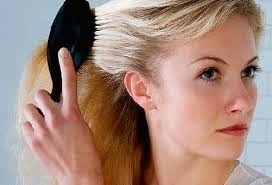It is true that if you treat your hair loss early on you will most likely get to keep all of your hair if you are a woman and much of it if you are a man. If you want to re-grow your hair after you have become bald, obviously, the results will probably be somewhat disappointing. The secret is to 'catch' the hair follicle before it has completely atrophied; luckily, this does not happen overnight; sometimes it is just 'dormant' and it can be stimulated to produce new hair.
There are some prescription hair loss treatments that can be effective; the idea that taking a pill a day can solve your hair problem is very appealing. However, if you are a pre-menopausal woman you will not find a doctor willing to prescribe some of those medicines for you (they are supposedly not safe for a male fetus) and if you are a man you may experience some side effects in the long run. Other prescription drugs for women, such as Dianette, can work to some extent (and if you are considering birth control bills anyway why not choose the one type which helps your hair?) but will probably need a 'boost' from topical solutions anyway. Moreover, ingesting drugs every day is not ideal in any circumstance, given that they are not as 'mild' as aspirin, are they?
The Solution in General. Both prescription drugs for hair loss and over the counter treatments address the issue of the most common hair loss form affecting men and women, namely hormonal sensitivity at scalp level to DHT, a hormone which, if it binds to the hair receptors, 'weakens' the hair follicle and eventually stops it from working.
There are generally 2 ways in which you can 'attack' this DHT problem:
1- Reducing DHT levels in general in your body and (in particular) in your scalp.
2 - Interrupt the binding process of DHT to your hair follicles.
This is where I wish to stress a very important point: unless your hair loss is caused by nutritional deficiencies or other similar problems, you will NOT stop it by taking 'hair nutrients'. In fact, if you nourish your hair follicles (by applying hair nutrients directly or ingesting hair nutrients in pill form) without addressing the DHT problem, you may risk irritating the scalp even further. I did! There is no point in stimulating hair growth unless you also get rid of the DHT interference to your hair follicles. If you do
When you research the many over-the-counter hair loss treatments, make sure they claim that they work in one or both the above ways. More importantly, and this is very important if you are considering products advertised online, do your own research into the ingredients they list to make sure the claimed properties are actually real and not just 'hype'
Personally, I find that Minoxidil is not for me, but it does work for many. I used to use a 5% solution combined with topical progesterone (which you can find over the Internet and is a proven anti-DHT hormone by combining with the hair receptors and leaving DHT 'out') and it worked. However, Minoxidil was giving me mild unpleasant side-effects and I decided to stop it. That left me open to experimenting with a few useless products. Over-the-counter homeopathy worked for a while, especially Lycopodium and Sepia, but you need to understand homeopathy really well before experimenting with their many remedies.
What worked for me was a simple shampoo, usually recommended against bad dandruff and scalp irritation. There are several shampoos that claim to 'clean' DHT from your scalp but I would research each product over the Internet, reading reputable web pages such as Wikipedia (and not just blogs or forums); this is what I did and it made the world of difference to me.
Anti-DHT shampoos are discussed on DHT BLOCKING SHAMPOOS.
Over-the-counter natural supplements and pretty much everything that worked well for me is all listed on HAIR LOSS SECRETS.

Over-the-counter natural supplements and pretty much everything that worked well for me is all listed on HAIR LOSS SECRETS.


